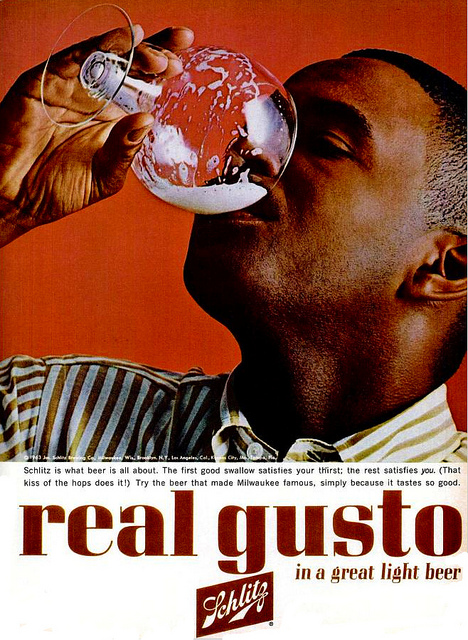A lot is being made about the absence of the Republicans from the anniversary celebration of the March on Washington.
But what surprised me far more was the dramatic absence of any meaningful corporate acknowledgement or celebration of the historic nature of the event. I tweeted on August 25:
Quick web check, no commemoration of March on Washington on Starbucks, Walmart, Target, Amex (black CEO), Amazon or "Think Different" Apple.
I continued to look for any reference to the semicentennial by major American companies or brands, and didn't find much, other than this comical gaffe from the Golf Channel, who urged its followers to:
"Tweet your 'golf' dream on the 50th Anniversary of MLK's 'I Have a Dream' speech, using: #DreamDay: I have a dream that ________"
What's shocking about this "failure to recognize" is that we are fully and completely in the era of cause marketing and corporate social responsibility, when brands strategically identify themselves with causes and movements that demonstrate they are caring, committed organizations.
About $1.8 billion is estimated to be spent on cause marketing this year, and for a good reason: more than 90 percent of global consumers say that they will switch to brands that are committed to good causes.
So why the deafening silence? It's not like there's anything controversial in celebrating the anniversary of the march that changed America. On the contrary, it's an event you'd think every company and brand would be thrilled to associate themselves with -- in a respectful and reverential fashion.
By contrast, there are CEOs who are not afraid to wade into the most turbulent waters; witness Howard Schultz, CEO of Starbucks, who took on a shareholder at the annual meeting, when the activist challenged the company's support of gay marriage. Schultz told him, pointedly, that if he doesn't like the company's policies, to sell the stock.
So what accounts for the silence? After all, the imperative of corporate social responsibility has motivated companies to get behind efforts to cure breast cancer, to reduce illiteracy, and to address just about every social woe that plagues America. Companies also step up in the face of tragedy; witness the important work of Walmart and others -- Nike, Disney, Bayer -- in the aftermath of Hurricane Katrina.
It's not like companies shy away from racial issues, either. Dozens of companies are willing participants in the annual celebration of Black History Month, to the point where BrandChannel asked "When Will Black History Month Stop Being a Marketing Hook?"
As I see it, there is no shortage of dignified, meaningful contributions that corporate America could have made to recognize the anniversary; how about a simple, respectful -- and reflective -- statement on a website to start? But that could just have been the start: for example, the establishment of commemorative scholarships for black youth. Imagine the power of an enduring "Chevy March On Washington Scholarship Fund." And why didn't a corporation step up and pay to bring the children of some of those who marched 50 years ago, to be there for the event this week?
It's ironic that the absence of corporate America in both the original march, and its half-century doppelganger, is one of its only commonalities. Of course, 50 years ago, you wouldn't expect corporate America to have played any role in the March on Washington. Back in those dark days, corporations did anything to avoid controversial issues. They trembled at the very thought of it.
Even an ad like this one -- featuring a black man in 1963, as an individual, not a convenient group -- was largely unheard of.

We're used to companies extending themselves into the social sphere today, but there was no institutionalized corporate social responsibility in the early 60s, even though the idea had been introduced a decade earlier - in a book called "Social Responsibilities of the Businessman" by the sadly overlooked Howard Bowen.
I don't have an answer to why there was no outpouring of corporate recognition for the 50th anniversary of he March on Washington. It's something I would have expected, had you asked me a few months ago. Could it be that companies didn't want to remind us of their silence 50 years ago? Doubtful. Could it be the fear of over-commercializing the event? Hardly, given what they've done with Black History Month.
Or was it just a failure of marketing imagination?
I have a theory -- and it's only that. The reason is President Obama. The unlikely confluence of the first black president and the anniversary of the March on Washington created a context where -- in the mind of corporate America -- any big gestures in support of the anniversary would be interpreted by the public as support for President Obama. He is a living, breathing outcome of the March; in many ways they are inseparable.
So why take the risk? Better to be silent than do something that could be seen as standing behind a president with a 50 percent disapproval rating.
If I'm right, it means that as much as things have changed in the last 50 years, the level of corporate courage isn't one of them.